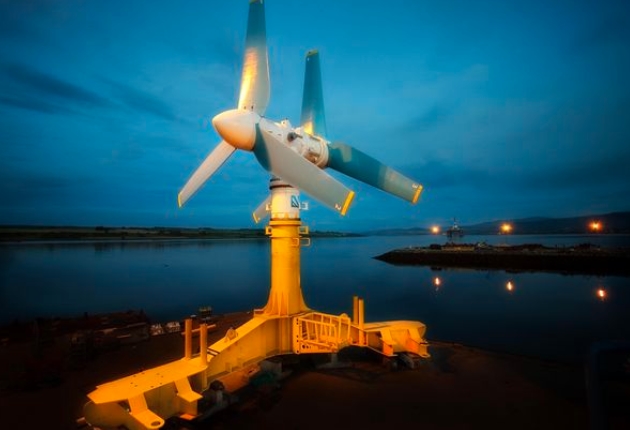A Scottish company secures €2.5 million for a tidal farm project
A Scottish company, Orbital Marine Power, has secured €2.5 million from the European Union’s Horizon 2020 programme for its tidal farm project in the Orkney Islands. The project, called TIGER (Tidal Stream Industry Energiser Project), aims to demonstrate the potential of tidal energy to provide clean and reliable power for remote coastal communities.
The company will use the funding to install and operate two of its O2 tidal turbines, which are the world’s most powerful floating tidal devices. Each turbine has a capacity of 2 megawatts and can generate enough electricity to power over 1,700 homes. The turbines will be connected to the local grid and will also provide power for hydrogen production and electric vehicle charging.
The project is expected to create over 100 jobs in the region and reduce carbon emissions by 86,000 tonnes over its lifetime. The project is also supported by the Scottish government, which has committed £3.4 million to the development of the O2 turbines.
Tidal energy is a key component of Scotland’s renewable energy mix
Tidal energy is a form of marine renewable energy that harnesses the power of the tides, which are caused by the gravitational pull of the moon and the sun. Tidal energy is predictable, reliable, and environmentally friendly, as it does not produce any greenhouse gases or pollutants.
Scotland has some of the best tidal resources in the world, with around 25% of Europe’s tidal potential. The country has a target of generating 100% of its electricity from renewable sources by 2020, and tidal energy is expected to play a significant role in achieving this goal.

According to the Scottish government, tidal energy could provide up to 20% of Scotland’s electricity demand by 2030, and support up to 5,600 jobs in the sector. The government has also established a £10 million Saltire Tidal Energy Challenge Fund to support the commercial deployment of tidal energy projects in Scottish waters.
The EU recognises the importance of tidal energy for the green transition
The EU has been a strong supporter of tidal energy development, as it recognises the potential of this technology to contribute to the green transition and the fight against climate change. The EU has set a target of reaching net-zero greenhouse gas emissions by 2050, and increasing the share of renewable energy to 32% by 2030.
The EU has invested over €200 million in tidal energy research and innovation since 2014, through its Horizon 2020 programme and other funding schemes. The EU has also supported the development of the world’s first tidal energy array, the MeyGen project in Scotland, which has generated over 30 gigawatt-hours of electricity since 2016.
The EU’s funding for the TIGER project is part of its Blue Economy Window, which aims to boost the growth and competitiveness of the blue economy sectors, such as marine renewable energy, aquaculture, coastal tourism, and maritime transport. The Blue Economy Window has a budget of €22.5 million for 2020, and will support 12 projects across the EU.


















